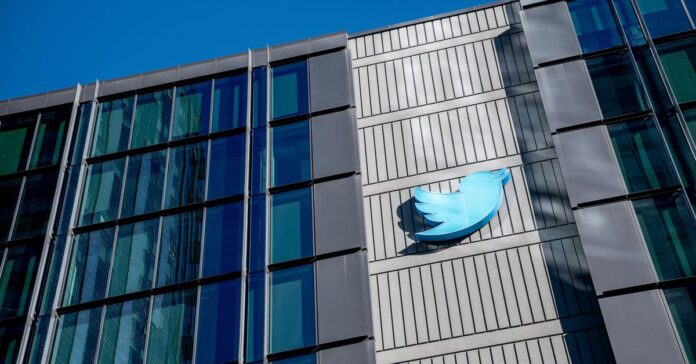Meta made tens of millions final yr on promoting that greenwashes fossil gasoline firms and spreads disinformation about local weather change, in keeping with a brand new report. And outright local weather denialism exploded on Twitter in 2022, in keeping with the evaluation revealed right now by a coalition of environmental teams and researchers.
They recognized fossil fuel-linked entities that spent about $4 million on Fb and Instagram adverts across the time of the United Nations’ local weather change convention in November. These adverts disparage the transition to scrub power that’s essential to sluggish local weather change, the report says, whereas portraying oil and gasoline firms as unlikely environmental champions. In the meantime on Twitter, the hashtag #climatescam has seen a meteoric rise since July of final yr.
The findings present “a stark comeback for local weather denial” and “negligence from Huge Tech firms who not solely proceed to monetize and allow, however in some instances actively suggest, such content material to customers,” the report says. Neither Meta nor Fb responded to a request for remark from The Verge.
“Negligence from Huge Tech firms who not solely proceed to monetize and allow, however in some instances actively suggest, such content material to customers”
The Institute for Strategic Dialogue (ISD), a suppose tank funded by the Invoice and Melinda Gates Basis that tackles extremism and disinformation, was the lead creator of the report. Associates of the Earth, The College of Exeter Seda Lab, and the Union of Involved Scientists have been amongst a number of different teams that contributed to the report.
It scrutinizes 850 advertisers on Meta’s Fb and Instagram between September 1st and November twenty third. That was a crucial time for world local weather motion; world leaders had gathered on the UN local weather convention in Egypt in November. The hope was that they might hammer out stronger agreements to slash greenhouse gasoline emissions — however there was finally little progress made on that entrance. The fossil gasoline business had despatched a flood of their very own delegates to the negotiations — and the brand new report exhibits that in addition they had an enormous presence on-line across the time of the convention.
The Heartland Institute, a suppose tank that assaults broadly accepted local weather science, ran a deceptive advert in November that stated: “New ballot debunks the 97% consensus declare about #local weather change.” In fact, there’s a mountain of proof and overwhelming consensus within the scientific neighborhood that human exercise is inflicting local weather change.
Power Residents, a entrance group for the American Petroleum Institute, ran essentially the most adverts in the course of the timeframe studied. It largely targeted on stoking fears that transitioning to scrub power threatens America’s “power safety.” Quite the opposite, excessive climate occasions — that are exacerbated by local weather change — have led to extra energy outages within the US. And analysis exhibits that oil, gasoline, and coal growth must be phased out to forestall such local weather disasters from reaching a brand new degree of severity.
America’s Plastic Makers, in the meantime, spent $1.1 million on climate-related advert campaigns. It pushed the parable that recycling solves the plastic waste downside. Plastic is definitely fairly troublesome to reuse; simply 9 p.c of all of the world’s plastic waste is recycled. However, the fossil gasoline business has tried to lean extra on its plastics enterprise these days to hedge towards clear power reducing into its earnings.
Oil and gasoline firms would possibly look like altering their tune relating to acknowledging local weather change — however they’re nonetheless selling narratives that might derail local weather motion, the report cautions. It discovered adverts from oil majors promoting purported options to local weather change. However the ways they push, like capturing carbon dioxide emissions from smokestacks, truly preserve international locations depending on oil and gasoline and are not any alternative for cleaner power sources.
The brand new report additionally confirms earlier research into the rise of local weather misinformation on Twitter. The hashtag #climatescam got here “out of nowhere” in July, the report says, spiking from little or no engagement to tons of of 1000’s of mentions by the top of the yr. The time period nonetheless pops up as a prime suggestion on Twitter when customers seek for the time period “local weather.”
“The supply of its virality is completely unclear, and reemphasizes the necessity for transparency on how and why platforms floor content material to customers,” the report says. To make certain, every kind of foul content material have exploded on Twitter since Elon Musk’s takeover — from hate speech to faux accounts. Scrolling via #climatescam is usually filled with lies like defining climate change as “the made up disaster the globalists/socialists use to instil [sic] worry and guilt to tax, regulate, and take away our freedoms whereas pretending to be saving the planet.”
Why does this nonetheless matter after years of research which have uncovered rampant local weather misinformation throughout social media platforms? The failure to crack down on content material that rejects broadly accepted science dangers derailing real-world motion that might forestall climate-related disasters from rising worse.
“The scenario is massively regarding and desires a coordinated response in all places, from Huge Tech to its regulators,” Jennie King, head of local weather analysis and response at ISD, stated in a press launch. “At this pivotal juncture, tackling local weather disinformation is a vital a part of local weather motion.”


